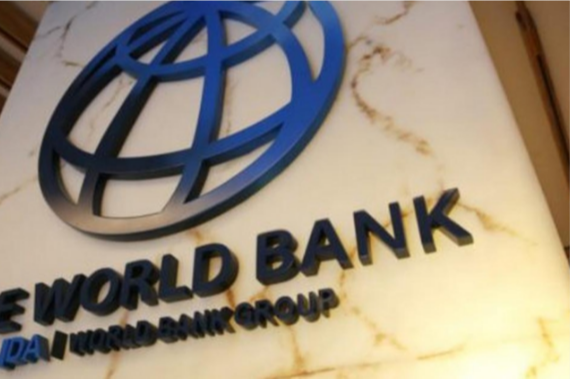
The World Banks’ Chief Economist for Africa, Albert Zeufack, has reiterated calls on Ghana and other countries in Sub-Saharan Africa to prioritize the implementation of short-term policies to help reconstitute their respective fiscal spaces, following the losses made as a result of the COVID-19 pandemic.
According to its latest Africa Pulse report dubbed Charting the Road to Recovery, the World Bank is predicting growth in Sub-Saharan Africa to fall to negative 3.3 percent in 2020, pushing the region into its first recession in 25 years.
The second Africa Pulse report for 2020, which analyzes issues shaping Africa’s economic furure, states that the Coronavirus pandemic could also drive up to 40 million people into extreme poverty in Africa this year, erasing at least five years of progress in the fight against poverty.
This is being attributed to among other things a decline in economic growth across multiple countries.
Nigeria and South Africa saw their real GDP contracting by 6.1 and 17.1 percent year-on-year in the second quarter of 2020. Speaking on the key steps needed to ensure that the whole of sub-Saharan Africa gets unto a path of sustained recovery, Albert Zeufack said significant efforts must be committed into debt restructuring along with a minimization of public spending.
According to the latest Summary of Macroeconomic and Financial Data from the Bank of Ghana, the country’s total public debt stock which started the year at GHS219.6 billion, stood at GHS263.1 billion by the end of July 2020, pushing Ghana’s debt to GDP ratio to 68.3 percent.
The situation, which the World Banks says puts Ghana at a high risk of debt distress, has necessitated calls for policies directed at strengthening the country’s fiscal position especially when it comes to debt restructuring.
This was echoed by the Governor of the Bank at the 96th Monetary Policy Committee Press Conference barely two weeks ago. On the way forward, the World Banks’ Chief Economist for Africa, Albert Zeufack, said long-term sustained recovery would have to be built on policies that lead to job creation.
Source:Fiilafmonline/CitiBuss



